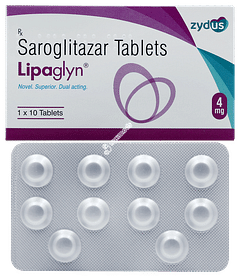Most people do not experience any side effects when taking this medicine. However, some common side effects include
- Dizziness: Some people may experience lightheadedness or dizziness when taking Combiflam tablet.
- Drowsiness: Combiflam tablet may cause drowsiness, so it is essential to be cautious when performing activities that require alertness.
- Indigestion: Combiflam tablet can cause mild indigestion, including an upset stomach and heartburn.
- Heartburn: A burning sensation in the chest that may be accompanied by pain and discomfort.
- Changes in kidney function- Decreased urine output, swelling of the ankles and feet or weight gain due to fluid retention.
Higher levels of liver enzymes- Elevated levels of enzymes in the liver can cause abdominal pain, fatigue and jaundice.
Managing the Side Effects
Diarrhoea: If you experience diarrhoea while taking Combiflam tablet, increase your intake of fluids and consult your doctor if the symptoms persist.
Dizziness: To avoid dizziness or lightheadedness, do not stand or sit up quickly after sitting or lying down.
Stomach Pain: If you experience any stomach pain, reduce the dosage of Combiflam tablet and talk to your doctor about alternate medications.
Heartburn: Taking Combiflam tablet after meals can minimise the risk of heartburn and indigestion. Maintaining a healthy diet and exercising regularly for optimal results are also important.
Liver Enzymes: If you are experiencing elevated levels of liver enzymes, it is best to consult your doctor, who can adjust the dosage or prescribe an alternate medication.
Changes in Kidney Functions: If you are experiencing any changes in kidney function, reduce your dosage of Combiflam tablet and talk to your doctor about alternate medications.
Precautions
Pregnancy
It is important to consult your doctor if you are pregnant before taking this medication. Combiflam tablets are not recommended during pregnancy, especially in the last trimester.
Breastfeeding
Combiflam tablets is not recommended during breastfeeding as it may pass into breast milk and harm the nursing infant.
Alcohol
Combiflam tablets should not be taken with or after drinking alcohol as it may increase the risk of stomach ulcers or bleeding.
Liver
It is recommended that people with liver disease take precautions while using Combiflam tablet. There is a possibility that the dosage of the Combiflam tablet must be adjusted. Please talk to your doctor, however, it is not recommended for patients with severe liver disorders to take Combiflam tablet.
Kidney
It is recommended that people with kidney disease take precautions while using Combiflam tablet. There is a possibility that the dosage of the Combiflam tablet must be adjusted. Please talk to your doctor, however, it is not recommended for patients with severe liver disorders to take Combiflam tablet.
Using Machines and Driving
This medication may cause drowsiness and dizziness. It may affect the ability to drive or operate machinery.
Use in Children
Combiflam tablet should not be given to children under 12 years except under the supervision of a doctor.
Use in Older Patients
Combiflam tablet should be taken with precaution in elderly patients. However, you should avoid overdosing on it. Before you start taking it, consult your doctor.
Interaction
Drug-Drug Interaction
The Combiflam Tablet can interact with medications, including Warfarin, Ticlopidine, Methotrexate, Metoclopramide, Domperidone, Furosemide, Prednisone, Ciprofloxacin, Theophylline, Ephedrine, Cholestyramine, and Duloxetine.
Drug-Food Interaction
The Combiflam Tablet can interact with foods, including Alcoholic Beverages.
Drug-Disease Interaction
The Combiflam Tablet can interact with Diseases, including Liver Disease, Asthma, Allergic Skin Diseases, Blood Clot Disorder, High Blood Pressure (Hypertension), History Of Heart Failure, Influenza (Flu), Gastric/Duodenal Ulcers, and Low Glutathione Level.


























